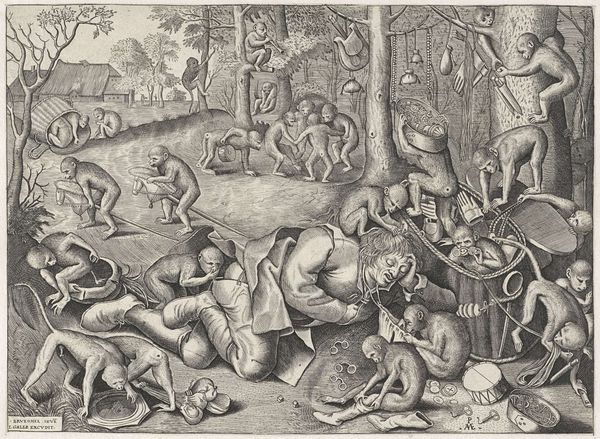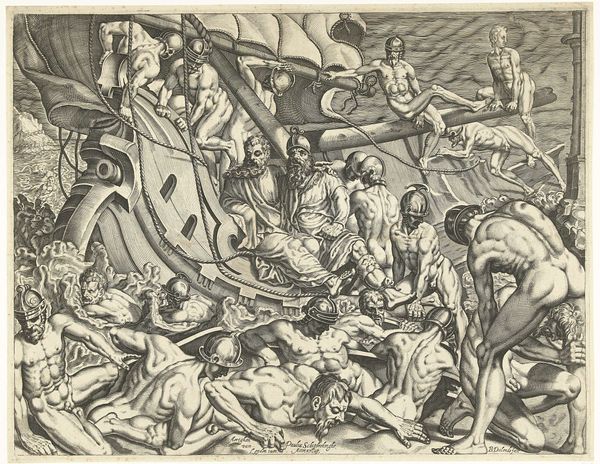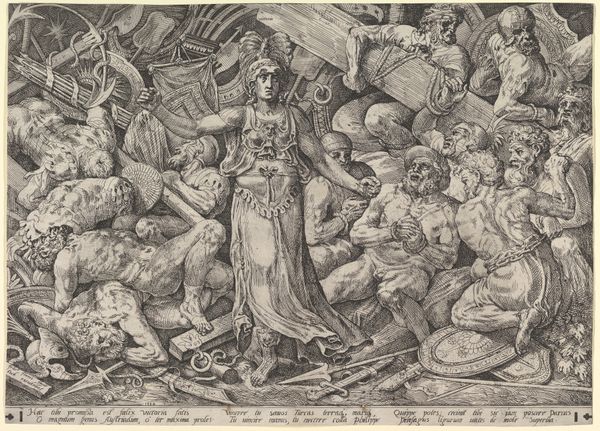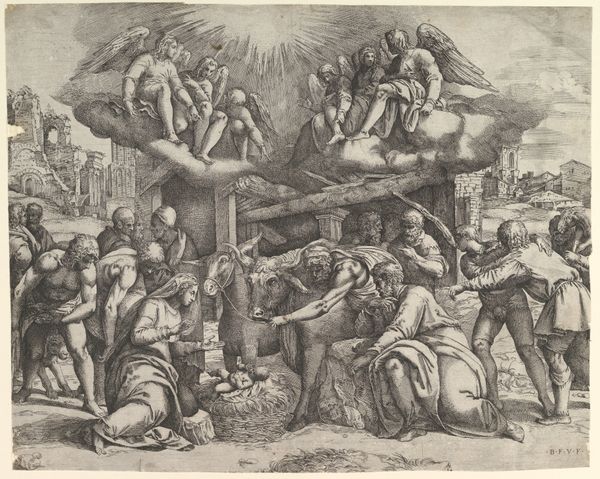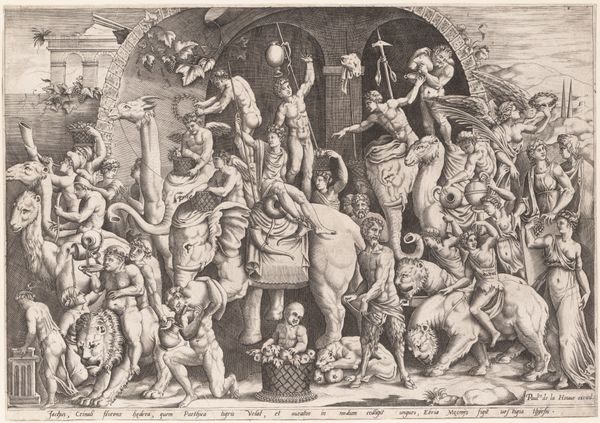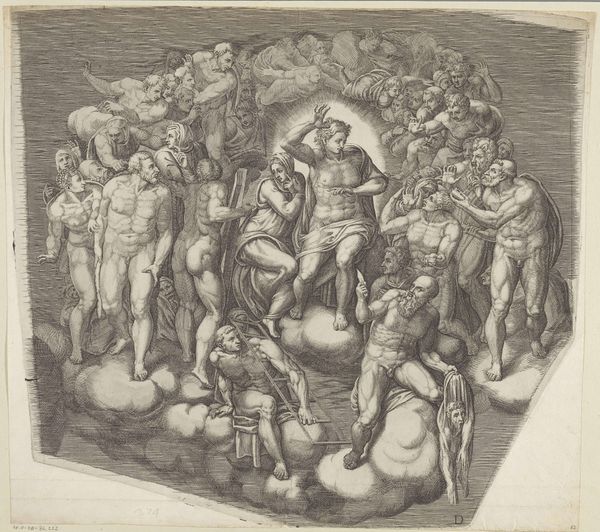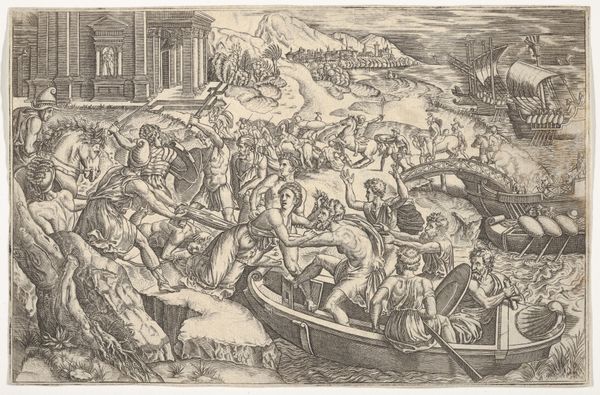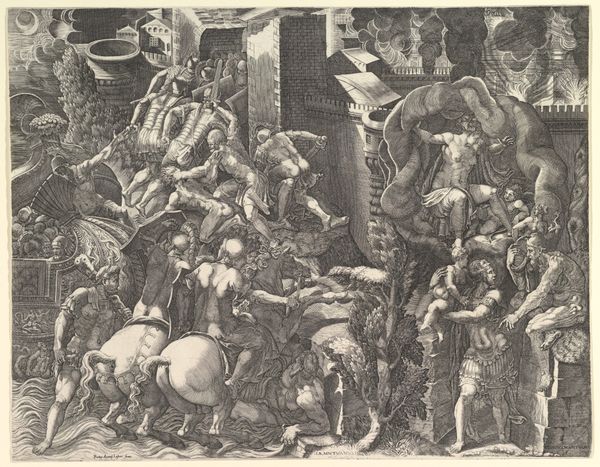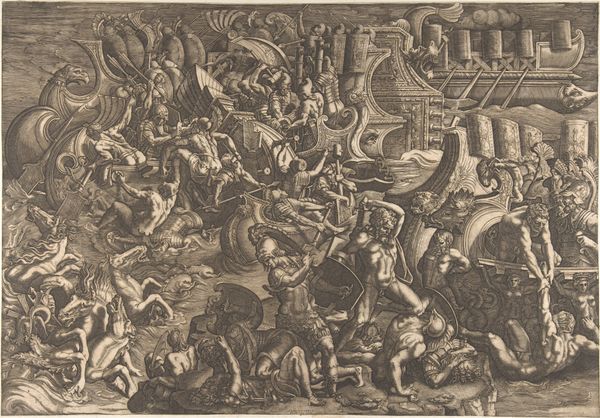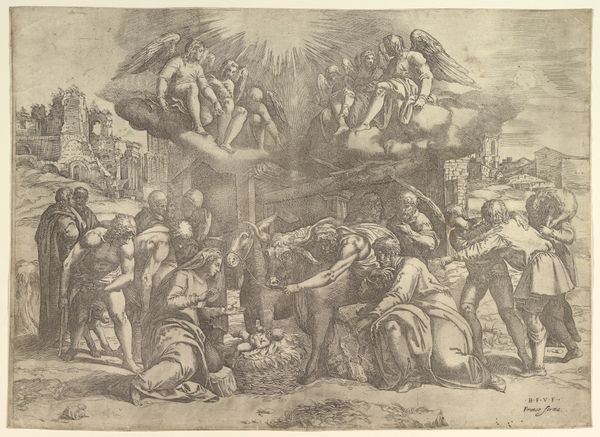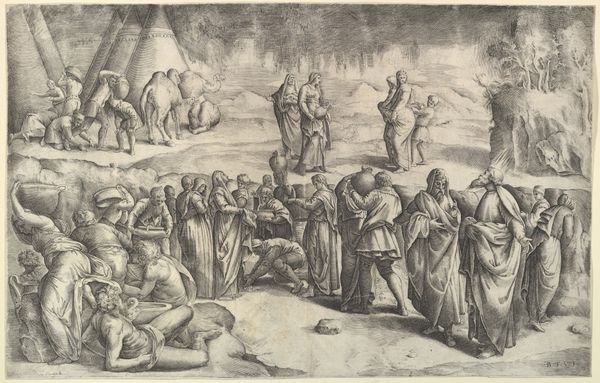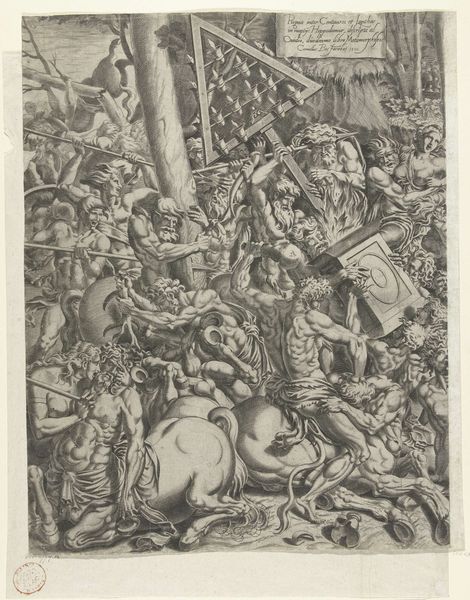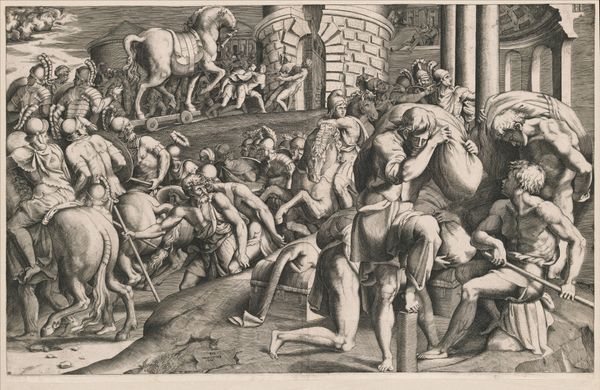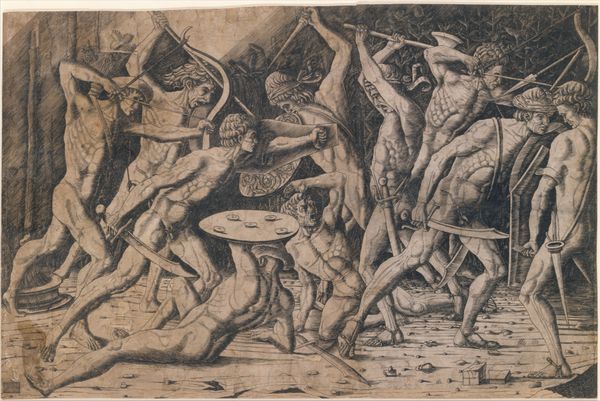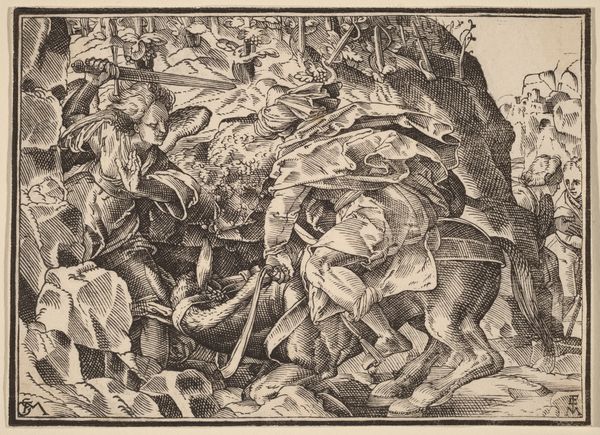
painting, oil-paint
#
painting
#
oil-paint
#
social-realism
#
oil painting
#
genre-painting
#
history-painting
#
charcoal
#
modernism
#
realism
Copyright: Candido Portinari,Fair Use
Curator: Candido Portinari's "Coffee Pickers," painted in 1935, offers a poignant depiction of labor in Brazil. What impressions strike you first about this work? Editor: The sheer physicality of it all. Look at the strained postures, the bulging sacks—the weight of the coffee seems to radiate outwards. It feels less like observation and more like lived experience etched in pigment. Curator: Portinari, aligned with Social Realism, aimed to convey precisely that—the dignity, yet also the brutal realities, of the working class. The figures, though rendered in a somewhat modernist style, possess an almost monumental quality. Notice how their simplified forms recall classical sculpture, investing them with a timeless, archetypal presence. Editor: I am particularly interested in the choice of materials. He uses oil paint to represent the physical weight, grit and dirt, not as separate elements from, but inseparable to the representation of exploitation. I am particularly interested in how these bodies become mere vehicles for capital extraction through their brutal exposure and physical fatigue. Curator: Absolutely. The symbolism is powerful. The coffee itself, the product of their labor, becomes an almost abstract form, a commodity that dwarfs the individuals who harvest it. It reflects the complex cultural legacy embedded within a single, everyday item. Editor: I find the process central to its power—the layers of oil built up mirror the grueling accumulation of labor in the fields. It's not just a painting *of* labor, but in some sense, a painting *about* it, and a testament of Portinari's social consciousness. Curator: A powerful statement, leaving me with much to ponder about visual communication and societal memory. Editor: Indeed. It provokes reflection on what and how we represent labor practices of societies over time, don't you agree?
Comments
No comments
Be the first to comment and join the conversation on the ultimate creative platform.
